Michael Walters
Notes from the peninsula
Welcome!
This is my little word garden on the internet—Michael Walters, author (it’s true!). I have a speculative fiction novel, THE COMPLEX, out with Salt Publishing, and I’m deep in the writing of a follow-up. I would love it if you gave it a try.
I use Bluesky to connect with people, Letterboxd to track films, and StoryGraph to track books. Follow me and say hello in all those places.
And if you want more of my thoughts on writing in particular, you can subscribe to my posts on PATREON. There’s a Weird and Wonderful tier if you want to support me with a donation, and that now includes notes on the novels I’m reading, but I post regularly to all patrons.
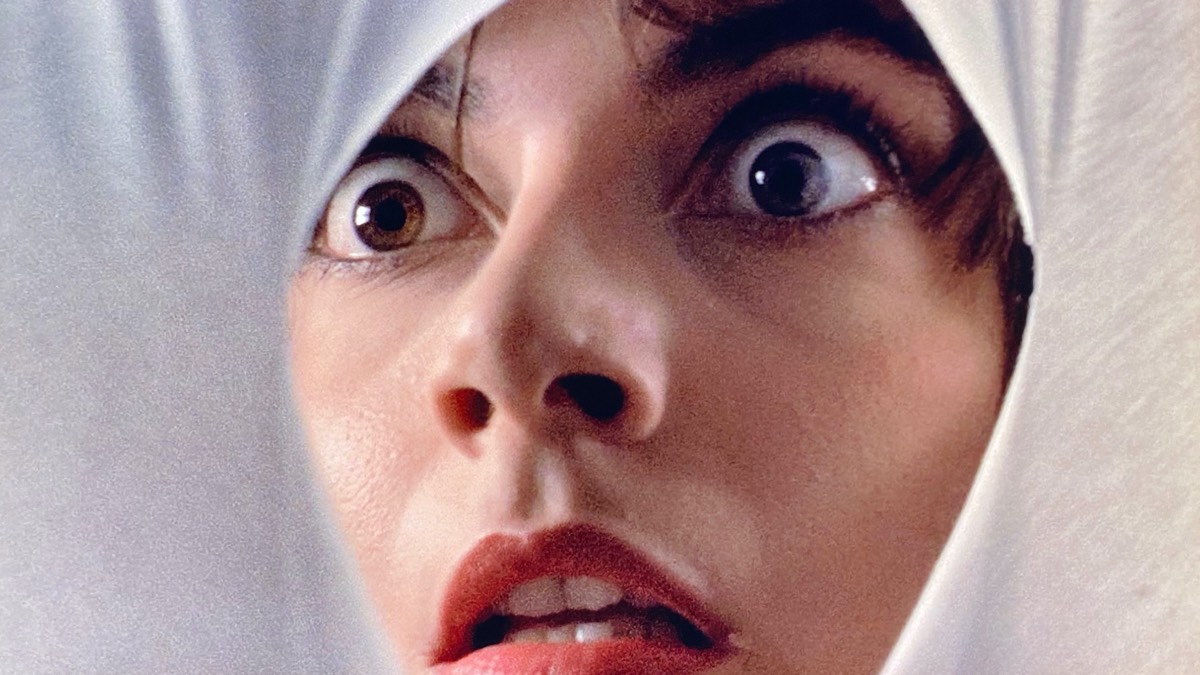
Tenebre (1982)
Director: Dario Argento
Tenebre is set in Rome, but we could be anywhere, because the story stays in hotel rooms, suburban streets and modernist buildings made of concrete and glass. There are artfully sculpted gardens of stone, water and trees. These locations lend themselves to the roving camera, and Argento likes to play the voyeuristic killer. The most famous scene has the camera drift slowly around the outside of a home, music blaring from a woman’s bedroom, focussing on the roof tiles, the walls, and the window slats, moving from room to room, as the killer takes two victims.
Thriller writer Peter Neal travels to Rome to market his latest book, Tenebrae (which means ‘darkness’), but he arrives to find a serial killer is mimicking in real life the murders in his book. The killer leaves notes under his hotel room door, and Neal gets drawn in to the killer’s game.
Argento knows films are inherently voyeuristic, and is aware of the criticism against him, and while the men die, the women do die in much more elaborate ways. He plays with our expectations, and has a protagonist who takes on the charges of misogyny directly. Giallo films usually have convoluted plots that lose me by the end, but this one makes sense. The set pieces are impressive, the story moves at a pace, the locations are fantastic, and the ending works — this is now one of my favourites.
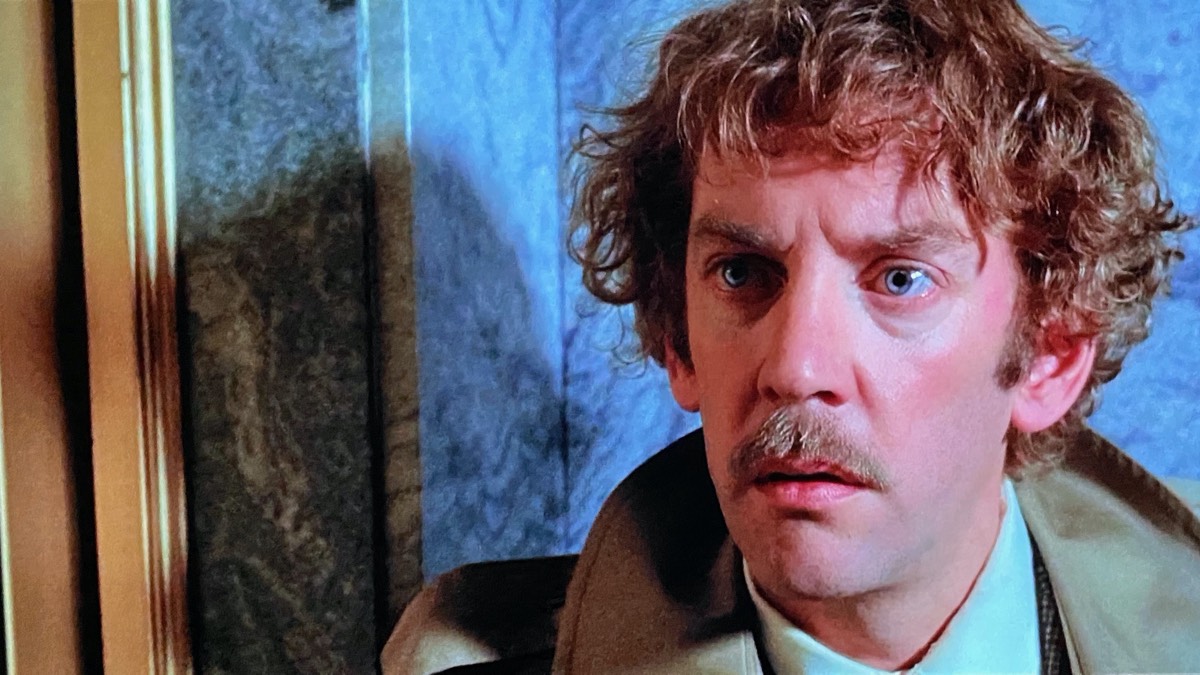
Director: Philip Kaufman
People in the background of shots look directly at the camera. Matthew’s windscreen is a web of cracks that we struggle to see through. The score is spidery and jarring, and the camera is often off-kilter. You are not paranoid if everyone is out to get you. The ending is famous, and even though I know I saw it as a teenager, I had forgotten it all.
It opens with alien spores spreading over San Francisco. A web-like substance cross-pollinates with local plants to create millions of tiny pods. Matthew works at the public health department with Elizabeth, whose husband begins to act like he is someone else. Matthew takes her to see a psychiatrist friend, David Kibner, at his book launch, played by the wonderfully insufferable Leonord Nimoy. They hook up with Matthew’s friends, Jack and Nancy, and as they work out what’s going on, they find themselves isolated among the quickly cloned citizens of the city.
When cloned people come for the group, they are worse than zombies, which at least look dead. These are retired neighbours, police officers and nurses. Everyone is an informant. Nancy tells Kibner what she thinks is going on, and she is right, but she loses her argument as she spins the truth into her personal conspiracy theories. Like QAnon and Trump’s fake news, Nancy trusts the wrong sources, sees patterns where there are none, and chooses not to believe the facts. It’s the uncanny world of fascism. The final quarter goes full horror. Watching Matthew bash in the face of his own pod creature with a shovel is one of the most disturbing things I’ve seen. A perfect film for its time, and for now.
Letterboxd: Invasion of the Body Snatchers (1978), dir. Philip Kaufman.
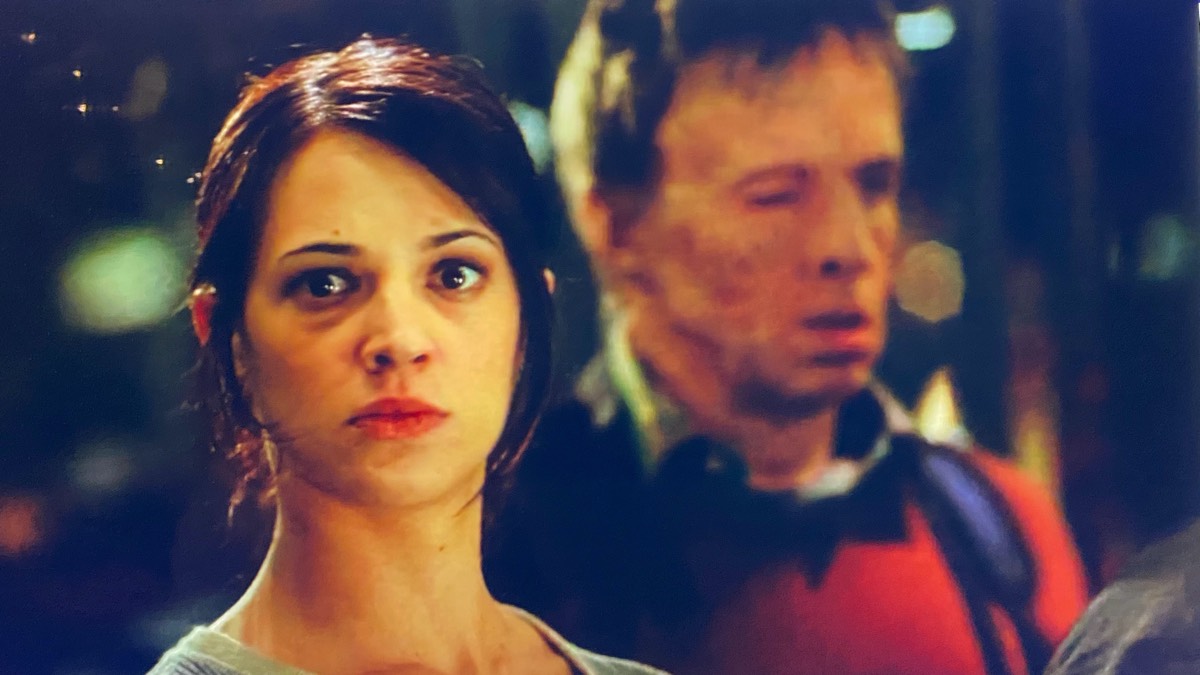
Land of the Dead (2005)
Director: George A. Romero
I’d been so careful choosing films until last night, and I thought I’d take a chance on this because it’s directed by George Romero. It felt like a safe bet, but I was wrong. This film made me angry. I admire the original trilogy, even if I don’t love them, so I’m surprised at how mindless Land of the Dead is. Romero directs it as an action film, and there is no depth or charm.
In the city of Fiddler’s Green, the moneyed few relax in a tall skyscraper run by Kaufman, played by Dennis Hopper. On the streets below, ordinary people eke out an existence, surviving on supply trips to nearby towns, which are full of zombies who act out zombie versions of their previous lives. Zombie intelligence is evolving, and a zombie garage attendant begins to work some key things out — that fireworks are a deadly distraction, how to fire a gun, and that being dead they can walk across the floor of the river protecting the city.
It’s another take on the conflict between the rich elite and the working classes. The best thing about it is John Leguizamo as Cholo, who at least has a character arc. Asia Argento’s Slack is fun too. But the bar is low, my friends. The bar is low. I’m not sure why I’m so upset. Even bad movies can be fun. I guess I thought I would have some brains to gnaw on, but there were no brains to gnaw on here.

Christine (1983)
Director: John Carpenter
Stephen King is brilliant at weaving vivid teenage experiences into his novels. Christine was one of the formative books of my childhood. The film doesn’t have time to go as deep as the book into the love triangle of Arnie, his best friend Dennis, and new girl Leigh Cabot. This is a horror film first and foremost.
Awkward Arnie and popular high school quarterback Dennis are an odd couple. When Arnie impulsively buys Christine, a dilapidated red-and-white 1957 Plymouth Fury, tension between them mounts, and Arnie’s personality changes. Dennis is the popular one in school, so he is stunned when new girl Leigh chooses the new Arnie over him. But Christine is a jealous and vengeful mistress.
When bully Buddy Repperton gets his gang to trash Christine, and Arnie discovers the wreckage, he realises Christine can fix herself. When he says, ‘Show me’, and stands back to let the car do her thing, it is an intimate, almost sexual act. The car is always more important to him than the girl. The car brings out the worst in Arnie. Like Dr Jekyll and Mr Hyde, Arnie wrestles with his newfound illicit power. Christine channels his unconscious rage and wreaks havoc. It isn’t love. Possessiveness is a power game.

Prom Night (1980)
Director: Paul Lynch
Like Scream’s Ghostface, the killer in Prom Night can be dodged and knocked over. This is not Michael Myers. There is a lot of disco. Jamie Lee Curtis is a fantastic dancer — this role for her comes straight after Halloween and The Fog, so it’s impossible not to compare it with Carpenter’s work, which is unfair. The students all come across as high school kids, and the performances and locations are realistic, but it looks cheap next to Halloween.
Curtis plays Kimberly Hammond, whose sister, Robin, we see killed six years earlier in a bullies’ game which goes horribly wrong. The group of eleven-year-olds — Wendy, Jude, Kelly and Nick — hide what they did, and a local man gets the blame. On their prom night, of course, the man escapes and returns to the scene of the crime.
There are shades of Carrie when bully group leader Wendy plots to ruin Kimberly’s prom, and much of the opening hour is teen drama, but there are some great moments — Kimberly and Nick in an extended dance sequence under the disco lights, the likeable Slick trying to escape the killer by driving his souped-up van in circles, and the awful Lou’s decapitation. The killer is hyperactive and cartoon-like, especially when wielding an axe, and the fighting near the end is unintentionally hilarious, but it does take an unexpectedly moving turn as the credits roll.
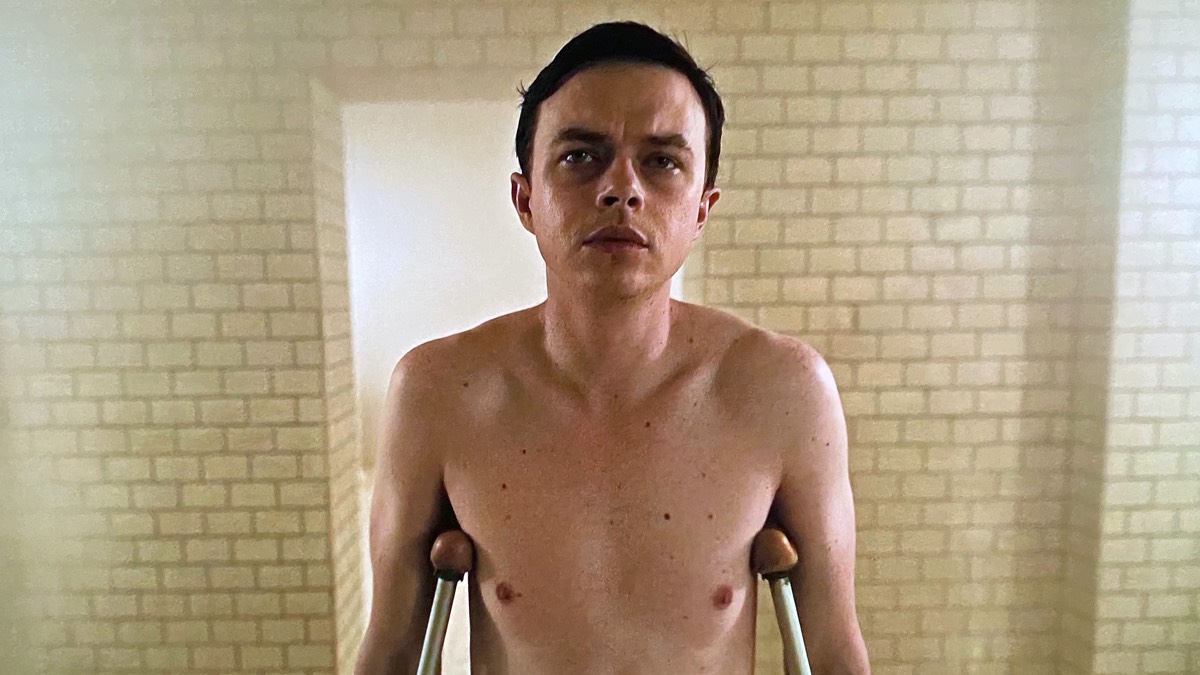
Director: Gore Verbinski
An ambitious young executive, Lockhart, is sent to a Swiss sanitorium to bring back his company’s rogue CEO, Morris Pembroke. The head of the spa, Dr. Heinreich Volmer, drips bad guy charm, but is also the voice of scientific reason. The patients at the spa are semi-retired high-flying executives, seemingly half-mad with wellness rhetoric, convinced they feel healthy, but never healthy enough to leave.
There are elements of Jacob’s Ladder, The Shining, Shutter Island and even Eyes Wide Shut. It’s an adult fairy tale, and Lockhart suffers at every turn. Like the amateur historian who helps him with his questions about the history of the area and is left a desiccated husk, Lockhart is good at puzzles. Before arriving at the spa, Lockhart visits his mother in her down-at-heel retirement home, and she gives him a ceramic ballerina she has painted. She says the ballerinas eyes are closed because she is dreaming. She also tells him he won’t come back from Switzerland. These two thoughts dominate the rest of the film, because once Lockhart starts drinking the water at the spa, we are given the puzzle of working out what is real and what is not.
The vampiric financial services industry, represented by Pembroke and Lockhart, is in conflict with the parasitic wellness industry, but the driver who takes the rich clientele to the spa does his job, like his father did, and that’s enough for him. The rowdy teenagers in the village are poor and can only look up at the wealth on the mountain top. Nobody ever leaves the spa, and as Hannah, the mysterious young woman who drifts around the grounds, says — why would anyone want to?
Letterboxd: A Cure for Wellness (2017), dir. Gore Verbinski.
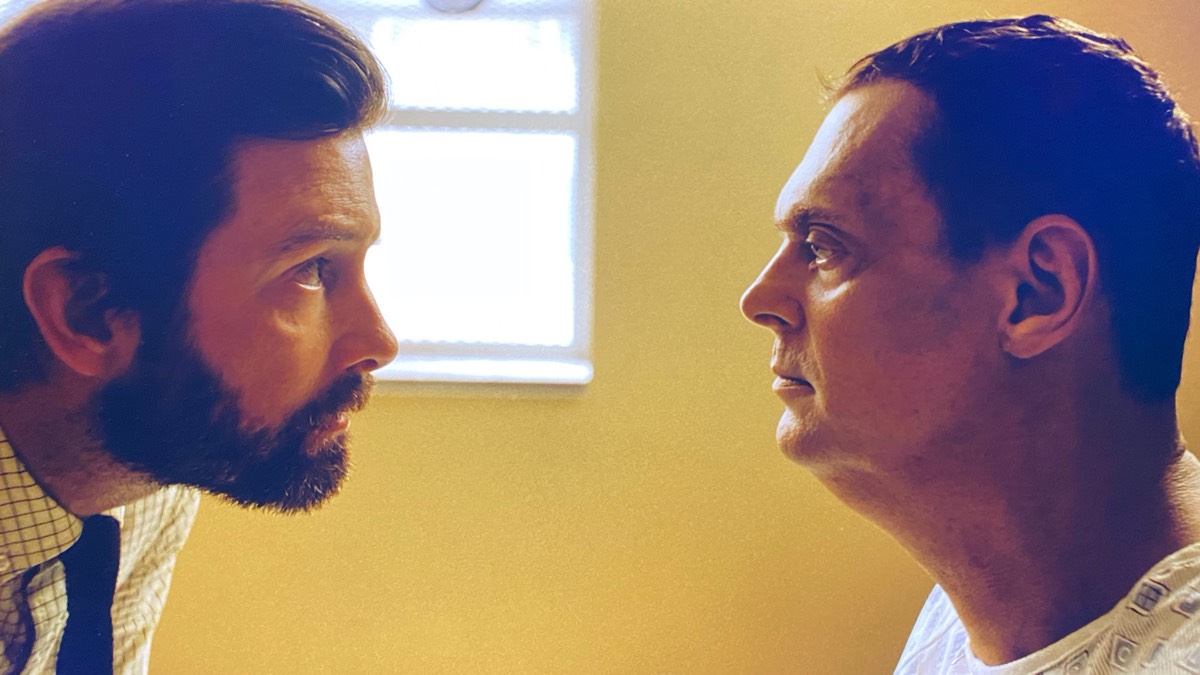
The Dead Center (2019)
Director: Billy Senese
In a Nashville morgue, an unnamed man comes back to life and escapes. Sheriff Edward Graham investigates the missing body, but across town, psychiatrist Daniel Forrester checks the now unresponsive man into a ward at the psychiatric hospital. These two strands interweave, as the sheriff investigates the man’s background and life, and the psychiatrist tries to get the man to remember who he is.
I didn’t know anything about this going into it. With older films, when I’m jotting my thoughts down like this, I don’t worry too much about spoilers, but with newer films I’m more cagey. The psychiatric hospital is wonderfully realistic. Apparently, consultant psychiatrists helped ensure the routines, types of patients, and medical processes were accurate, and that comes across. Daniel is one of those potentially cliched trouble doctors who break the rules, but Shane Carruth is a good enough actor to make us believe in him.
It does have a hospital drama vibe in places, but this is a short, sharp film, less than ninety minutes long, and it zips along. By the final third we suspect what’s coming. Nothing is over-explained, which along with the smart camerawork, gives the film a nice feeling of dread, and it nails the dismount.
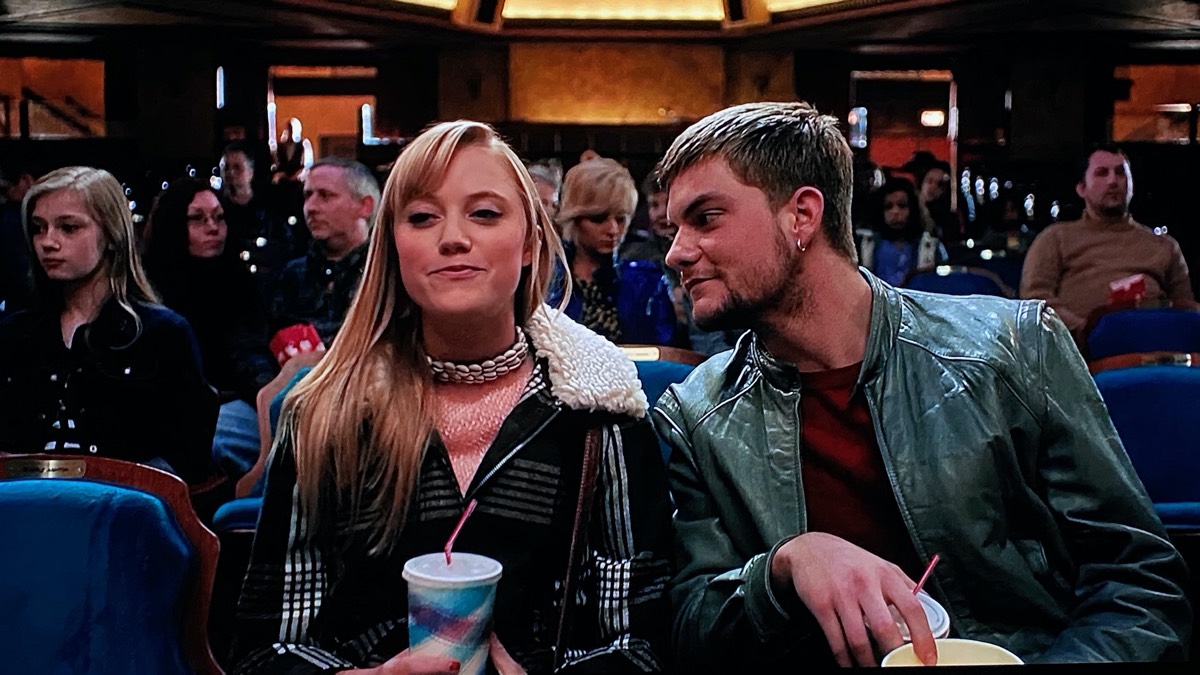
It Follows (2015)
Director: David Robert Mitchell
The film opens with a wide shot of a leafy suburban street, and we look closely for whatever we think the director wants us to see. Like Jay, we are trained from the start to scan the horizon for trouble. Jay is innocent, a virgin, sensitive to nature, noticing insects and leaves on the trees. After sex with Hugh in his car, she talks about what might be different now, while studying the flowers growing through the concrete. Seconds later, Hugh has chloroformed her, and her childhood is suddenly over. After showing her the thing that will now come after her, he dumps her half-naked in the street and drives off.
This is a deeply sad film. It’s an allegory for rape, and the emotional aftermath for the victim. At the cinema, Jay and Hugh play the ‘who would you swap places with’ game, but Hugh is trying to swap places with Jay, so it is revealing he chooses the little boy, because he doesn’t know yet about death. Hugh infects Jay with a sexually-transmitted curse in the shape of an endlessly approaching zombie. Jay’s sister, Kelly, and Kelly’s friends, Paul and Yara, try to help. All the young people, including the older, promiscuous Greg, are sweet and kind to each other. We never see Jay’s mother’s face, and her father only shows up as one of the thing’s many violent forms. The adults cannot help her.
Hugh’s assault traumatises Jay, and not only is she not sure what happened, nobody believes her account at first either. Jay finds herself in a different, frightening, more serious world. In a series of skillfully constructed set pieces, we follow Jay’s journey, from innocence, through trauma and support, to some kind of resolution. Passing the curse on buys you time, but doesn’t break the chain. Hugh has condemned her to a life of anxiety (isn’t that the definition of PTSD?) and now she can never know how far death is behind her.
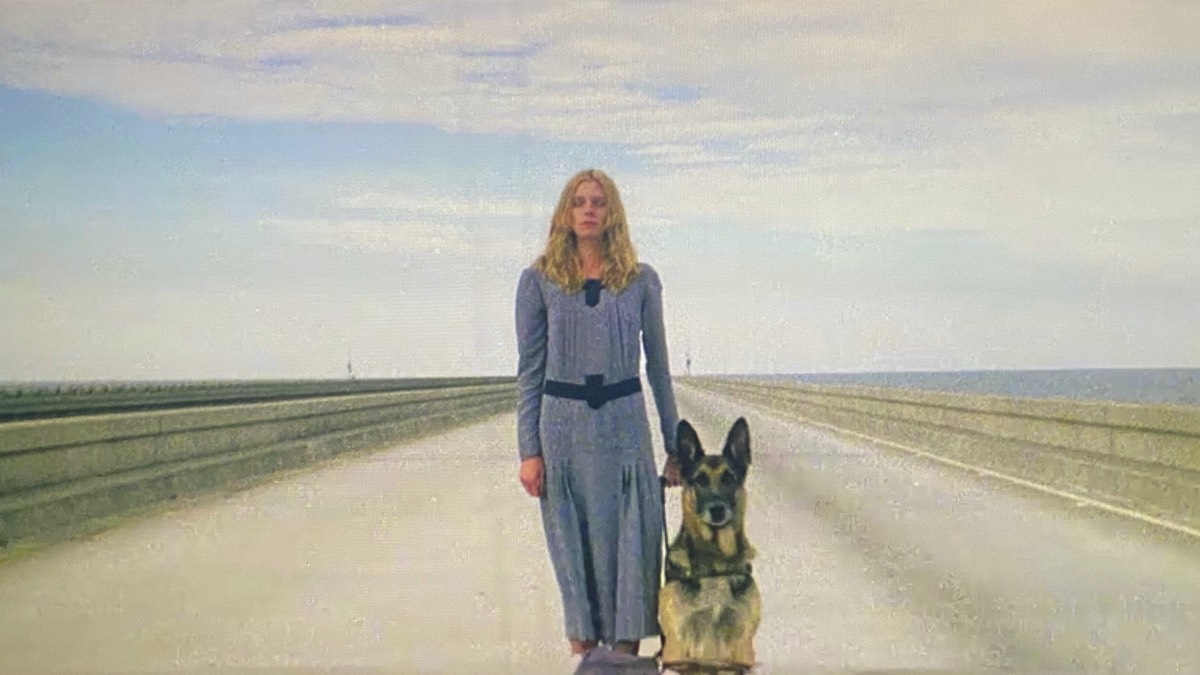
The Beyond (1980)
Director: Lucio Fulci
Returning to Fulciland, The Beyond is more coherent than City of the Living Dead, but of course, it’s still driven by images. Like The Amityville Horror, there is a portal to hell in the basement, and people get mysteriously hurt while working in the house. Like Hellraiser a few years later, the dead return to claim the ones that escape from hell. It’s a film full of ideas, not all of which make narrative sense.
Liza Merrill inherits from her mother the wreck of the Seven Doors Hotel, Louisiana, and plans to renovate it. She doesn’t know that fifty-odd years earlier, a lynch-mob killed an artist, Schweick, who left a painting unfinished in his room. His death was an accidental sacrifice that partially opened one of the seven portals of hell, and her work on the house fully opens it, giving Schweick the chance to return. In her attempts to work out what is going on, she teams up with Dr John McCabe from the local hospital.
There is a lot going on — a blind woman sent from hell with a message, a man eaten alive by tarantulas, maps that change as characters look at them, a doctor who wants to measure the brain waves of corpses — it’s violent and gruesome and icky. You are not given much opportunity to care about the characters. Towards the end, Liza and John get caught in a space-time loop that leads them inexorably to the bleakest ending to a film that I can remember.
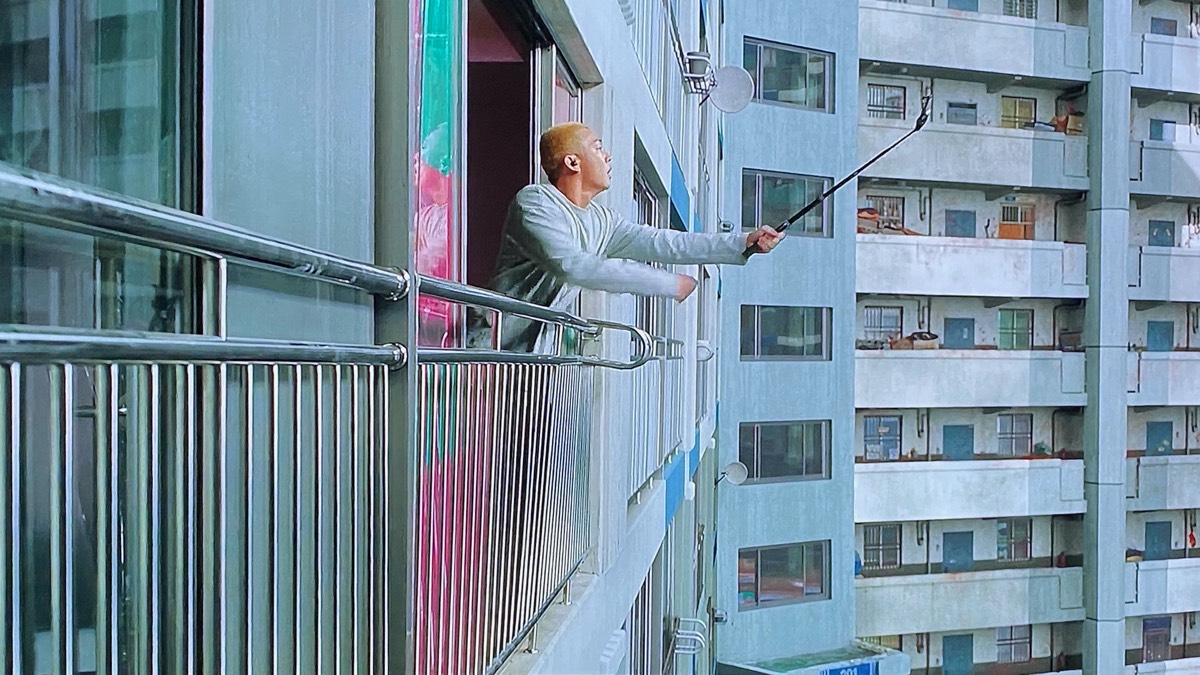
#Alive (2020)
Director: Cho Il-hyung
After Fulci’s barely moving undead, the running zombies of #Alive are a bit of a shock. Technology is an ally here, which is refreshing in a horror film, although at the start, Joon-woo seems to be in a semi-infantile state, still living with his parents, and spending most of his spare time playing video games. He lives on the third floor of an eight-storey apartment complex in Seoul. When a zombie virus hits his part of the city, his parents are out, and he barricades himself in the apartment. Alone, he resolves to survive, but having chosen to play his video game over buying food as his mother asked, he has no supplies.
It reminded me strongly of the French film, The Night Eats the World, which has a man holed up alone in a swanky Parisian apartment block after a zombie virus. There are several parallels with it, from how the zombies behave, to survival methods, to the arrival of another person at the mid-point. The apartment block corridors are effectively awful spaces for zombie chases. #Alive brings the extra ingredient of technology into the mix. While he has no mobile signal or internet connection, he can still pilot a drone, and it is the message he posts on social media just before the connections go down that gives him his best chance of survival.
The relationship he strikes up with Yoo-bin, who is holed up in the apartment opposite him, is sweet, and she is the brains in their partnership. It’s a coming-of-age story underneath the standard zombie story tropes. It doesn’t shy away from the desperation and despair Joon-woo experiences, but at heart it’s an action-romance for teenagers, and no worse for that.